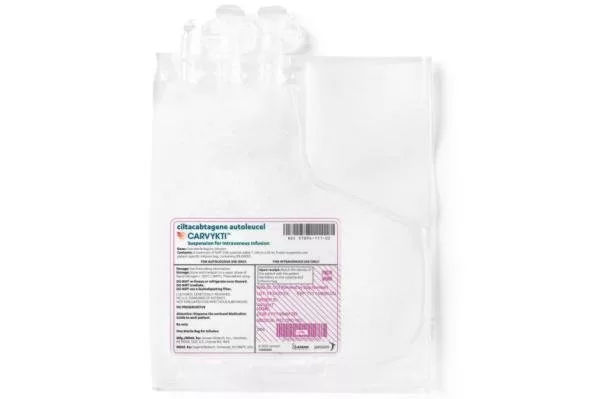Let’s get straight to the point: a single infusion of Carvykti can cost anywhere from $465,000 to $593,000. That’s the headline number you’ll see on the FDA label and on most pharmacy price guides. But the story behind that figure is a lot richer—and more hopeful—than a cold, big‑number alone.
Why does the price matter? Because Carvykti is a one‑time, life‑changing CAR‑T cell therapy for adults with relapsed or refractory multiple myeloma. Understanding the real cost, where the money goes, and what financial help is available can turn a daunting bill into a manageable plan. So, grab a cup of coffee, and let’s walk through everything you (or a loved one) need to know.
List Price Overview
The FDA’s official approval documents list Carvykti’s price at $465,000 per infusion. This is the “list price” that the manufacturer publishes to the public. It reflects the cost of producing a highly personalized therapy—your own T cells, genetically tweaked, grown, and shipped back to you.
When you ask a pharmacy for a cash‑pay quote, you’ll often see a higher figure—around $592,815 according to the Drugs.com price guide. That number represents what you might pay out‑of‑pocket if you have no insurance or discounts.
What’s actually included in that price? Think of it as an all‑inclusive travel package:
| Component | Approx. Cost |
|---|---|
| Leukapheresis & cell processing | $100,000 |
| Genetic engineering & manufacturing | $250,000 |
| Shipping, handling, and cold‑chain logistics | $30,000 |
| Infusion, monitoring, and 30‑day post‑infusion care | $85,000 |
| Total (rounded) | ≈ $465,000 |
Because the therapy is a single infusion (the snippet you saw on the FDA site confirms “one‑time single dose”), you won’t see a recurring monthly bill—just this big upfront number.
Insurance Realities
Most patients aren’t paying the full list price. Private insurers, Medicare Advantage plans, and even some Medicaid programs have negotiated rates that can bring the out‑of‑pocket portion down to 10‑20 % of the list price.
Here’s a quick look at how different scenarios can play out:
- Private PPO: 15 % coinsurance → roughly $69,750.
- Medicare Advantage: 10 % coinsurance with $0 deductible → around $46,500.
- No coverage: You’re on the cash‑pay side, facing the $592,815 quote.
Insurance companies use billing codes (HCPCS and CPT) to reimburse the drug and the associated services. The exact reimbursement amount varies by contract, so it’s worth asking your pharmacy benefits manager for the negotiated rate before the infusion.
Help Programs
If the numbers above still feel like a mountain, know that a whole network of assistance programs exists to lighten the load.
The most common options are:
- Drug discount cards – the free Drugs.com discount card can shave up to 80 % off the cash price for many pharmacies.
- Patient Access Network (PAN) Foundation – eligibility typically requires an income between 400‑500 % of the Federal Poverty Level, U.S. residency, and a prescription that your insurance already covers. When you qualify, PAN can cover the entire drug cost.
- Hospital charity care – many academic cancer centers have their own financial navigator teams that can apply for hospital‑based hardship waivers.
| Program | Eligibility | Maximum Benefit | Application Time |
|---|---|---|---|
| PAN Foundation | Income ≤ 500 % FPL + insurance coverage | Full drug cost | 2‑4 weeks |
| Drugs.com Discount Card | No restriction | Up to 80 % off cash price | Immediate (print & use) |
| Hospital Charity Care | Varies by institution | Partial to full cost | 1‑2 weeks |
My friend Maria, 58, was diagnosed with multiple myeloma last spring. After three prior treatment lines, her oncologist suggested Carvykti. She was terrified at the $465k price tag, but by combining her insurance’s 15 % coinsurance with a PAN grant and a discount card, she walked away with an out‑of‑pocket bill of just $30k. That’s the kind of “real‑world” impact these programs can have.
Carvykti vs Abecma
If you’re already digging into CAR‑T options, you’ve probably stumbled upon Abecma vs Carvykti. Both are FDA‑approved CAR‑T therapies for multiple myeloma, and their price points sit close together.
Here’s a snapshot of the latest public numbers:
| Therapy | List Price | Median Progression‑Free Survival | Grade ≥ 3 CRS |
|---|---|---|---|
| Carvykti | $465‑$593k | 20 months | 7 % |
| Abecma | $450‑$480k | 18 months | 5 % |
While the list price difference may look small, the nuanced efficacy and side‑effect profile can tip the scales for a particular patient. Your oncologist will weigh factors such as prior therapies, disease aggressiveness, and your overall health when recommending one over the other.
Patient Stories & Real‑World Experience
Numbers are helpful, but they don’t capture the emotional roller‑coaster families go through.
Story 1 – “The Relief After the Infusion”
When 62‑year‑old James learned he was eligible for Carvykti, the first thing on his mind was the cost. After a deep dive with his hospital’s financial counselor, he learned about the discount card and applied for PAN. The final bill? Roughly $55k, covered mostly by insurance. The relief he felt after the infusion—knowing the tumor burden had dropped dramatically—was priceless.
Story 2 – “Navigating the Insurance Maze”
Emma’s daughter, Maya, was told Carvykti was the best option after a relapse. Emma spent hours on the phone with three different insurers, requesting prior authorizations and negotiating the coinsurance rate. It was exhausting, but each call shaved about $30k off the projected cost. Emma says, “It felt like a battle, but we won because we kept asking the right questions.”
These anecdotes illustrate two key takeaways:
- Start the financial conversation early—the sooner you involve a navigator, the more options you’ll uncover.
- Don’t be afraid to ask for help—whether it’s a discount card, a foundation grant, or a hospital’s charity program, every dollar saved matters.
Putting It All Together
Let’s recap the most important points you need to walk away with:
- Head‑line price: $465k (list) – $593k (cash‑pay).
- Insurance can reduce that dramatically: Many plans bring the out‑of‑pocket amount to 10‑20 % of the list price.
- Financial assistance exists: Discount cards, PAN Foundation, and hospital charity care can turn a six‑figure bill into a manageable expense.
- Carvykti vs Abecma: Prices are similar; efficacy and side‑effect profiles differ, so a personalized medical decision is key.
- Real‑world stories show it’s doable: Patients like Maria, James, and Maya have navigated the cost with help.
If you’re trying to decide whether Carvykti is right for you or a loved one, the best next step is a candid conversation with your oncology team. Ask them about:
- The expected out‑of‑pocket cost after insurance.
- Eligibility for patient‑access programs.
- How Carvykti compares clinically to other CAR‑T options (read more in the what is carvykti article for a deeper dive).
And remember—this isn’t a solo journey. Financial counselors, patient‑advocacy groups, and online communities are all ready to walk alongside you.
Take the First Step Today
Feeling overwhelmed? That’s completely normal. The good news is that the information is out there, and help is just a phone call or a few clicks away. Whether you start with a discount card, reach out to the PAN Foundation, or simply ask your doctor for a detailed cost breakdown, each action brings you a step closer to a clearer, more affordable path.
What’s your biggest question about Carvykti’s cost? Have you already found a program that helped you? Share your thoughts, and let’s keep the conversation going. Together, we can turn those big numbers into manageable steps toward a brighter, healthier future.


















Leave a Reply
You must be logged in to post a comment.